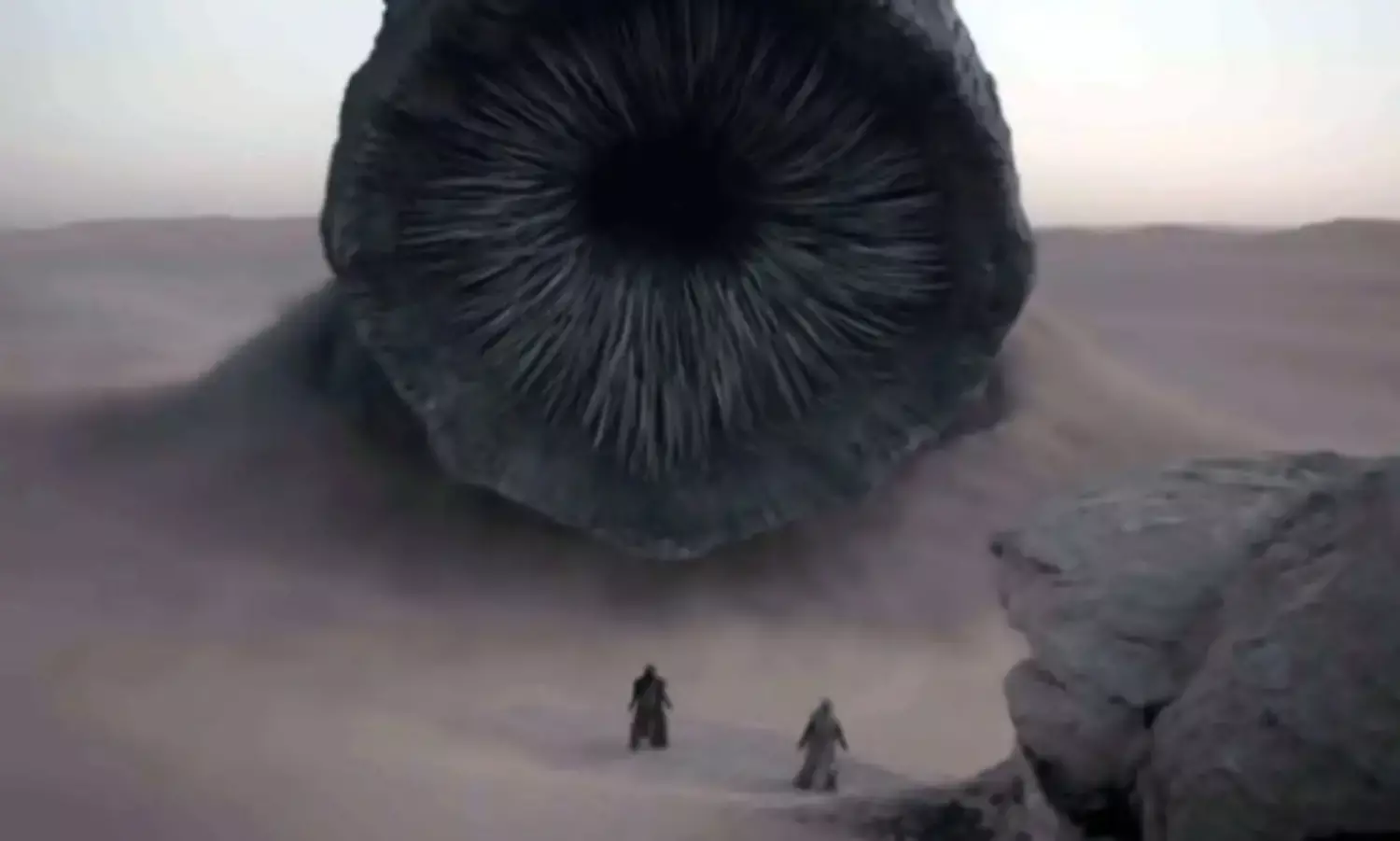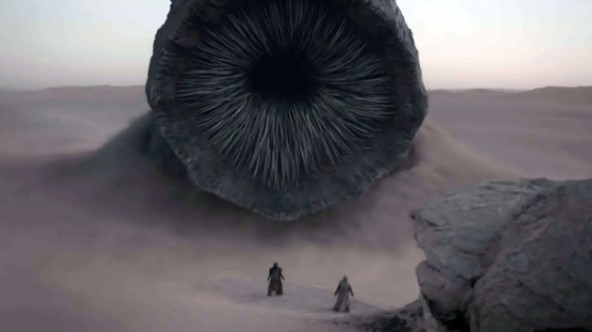Dune is Breathtaking
The cinematic universe known as Denis Villeneuve

Frank Herbert’s 1965 epic novel Dune has been the cause of much folklore in cinema. Following failed attempts by some of the biggest names in the history of cinema (Alejandro Jodorowsky whose version failed to even start production and David Lynch’s much maligned 1984 film) Dune had been given the unceremonious tag of “an un-filmable novel”.
Therefore, with one of modern cinema’s greatest directors attached to yet another attempt to film this magnificent story, Denis Villeneuve’s Dune piqued the curiosity of film lovers all over the world ever since it was announced a couple of years back.
With the film now in theaters, time has come to finally answer that question, is this a good film? And the answer is a clear and emphatic Yes.
Perhaps all Dune needed was a visionary and craftsman at the level of Villeneuve to realize its potential in film. To be fair, it benefits immensely from technological advances made in the visual arts since the time of its last installation – and Dune being a sci-fi story heavily dependent on world building benefits from these new-fangled techniques more than most other stories would have.
But aside from the fact that the film looks, sounds and feels great, the best things about Dune are how powerful and engrossing the narrative is and how layered and charismatic the characters are. What is also most impressive is how Villeneuve, who also co-wrote the film with Eric Roth and Jon Spaiths, has dealt with information dissemination.
Dune is a dense novel, and with such adaptations what to keep in and what to cut out always becomes a challenge for the makers. But in this film, the passages and exposition that must have taken up pages upon pages in the book, are inserted cleverly, economically, and engagingly for the audience to lap up so that they are further drawn into this rich world created by the filmmakers.
At its heart Dune is a coming of age tale. It tells the story of Paul Atreides, first in line to the throne of house Atreides in a distant future where mankind has left Earth and learnt to harvest the power of interdimensional travel. Human society is now spread out over galaxies and organized into middle-ages-like fiefdoms which are ruled by one supreme emperor.
When the emperor is threatened by house Atreides’s rise, he sends them to govern over the critical desert planet of Arrakis, the only place that produces the substance known as ‘spice’ which makes interplanetary travel possible.
Once there, the emperor betrays house Atreides and kills their lord and Paul’s father Leto Atreides. It is now up to Paul to avenge his father, lead the tortured native Fremen of Arrakis to rebellion and restore order to the universe by ousting the emperor.
Sounds kind of like Game of Thrones meets Star Wars and every other Western epic of the last several centuries, does it not? And therein lies my only problem with Dune (the story, not the film).
The West seems stuck on the age old ideas of fiefdoms, medieval societies, royal politics, and Christ inspired tales of the second coming of ‘The One’ who will go on to find himself and save the tormented proletariat.
While there’s nothing wrong in going back to the classics for inspiration, it becomes a problem when the same themes are rehashed everywhere from Star Wars, to The Matrix, to Game of Thrones, to Dune, and everything else in between.
Blockbuster Hollywood almost seems incapable of telling an epic tale without these age old themes, which is disappointing considering the level of innovation in story-telling these days in the more intimate formats.
Limitations of its source material aside, this version of Dune is a cinematic triumph. Villeneuve has created a rich and almost palpable world which is both epic and intimate. Now it seems that rather than being an un-filmable novel, Dune is tailormade for cinematic storytelling. A universe so complex and layered could have only come alive on celluloid, the page being just the first step in its journey.
Man of the moment Timothée Chalamet is equal parts evocative and restrained in his mature portrayal of the much coveted role of Paul Atreides. He leads an enviable ensemble cast consisting of huge names, the likes of Josh Brolin, Oscar Issac, Jason Mamoa, Rebecca Ferguson, and Zendaya all of whom bring gravity to their characters.
My heart especially went out to Oscar Issac who, as Leto Atreides, brings layers upon layers of intimacy, gravitas and charisma to proceedings in the short screen time he has. He is at once a father with a son on the cusp of adulthood and a leader with a vision at the risk of obliteration – and the effortless way Issac manages to marry these two is masterful.
But at the end of the day Dune rests very clearly in the cinematic universe known as Denis Villeneuve. It looks, feels, and sounds unmistakably like a Denis Villenueve film. Fans of his work will find ample narrative and cinematic parallels to his other works such as Arrival and Prisoners. It is all clearly coming from the same creative mind, and that is important because it means that Dune is a rare example where a huge scale Hollywood blockbuster has embraced the auteur.
A special word here to the master – Hans Zimmer. Yet again the man has created music so passionate and haunting that it truly deserves to be called the soul of the film.
And while it is evident that most of what we see on screen is CGI, the direction and cinematography must be lauded for its large screen vision and execution. Every inch of the screen even on Imax tells a story.
A story so cinematic that if you are a cinema lover then you are bound to love Dune. Go and watch it on the big screen. Anything else would be criminal.




